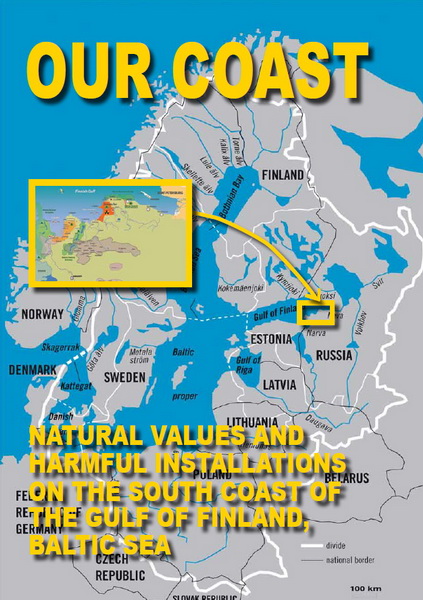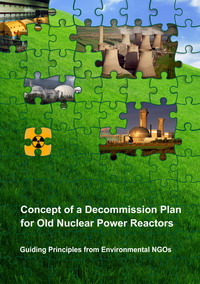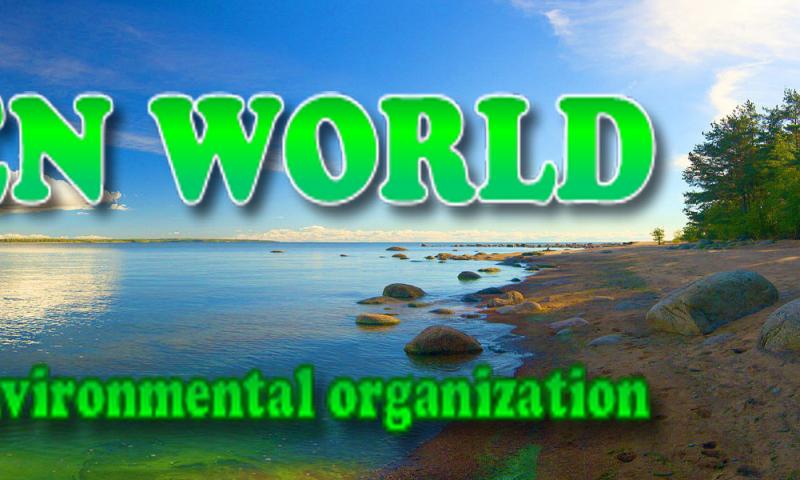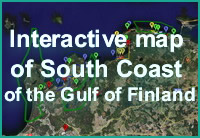
 |
The South Coast of the Gulf of Finland |
|---|---|
| Natural Values and Harmful Installations |
 |
Concept of a decommission plan for old nuclear power reactors |
|---|---|
| Guiding Principles from Environmental NGOs |
Position of Non-Government Environmental Organizations Concerning the Possible Building of the Leningrad Nuclear Power Plant-2 (LNPP-2)
NON-GOVERNMENT ENVIRONMENTAL ORGANIZATIONS PROTEST AGAINST THE PLANS OF THE CONSTRUCTION OF A SECOND LINE OF THE LENINGRAD NUCLEAR POWER PLANT (LNPP-2)
We consider it to be poor judgment under conditions of financial-economic crisis and a decline in demand for electric energy to invest huge government resources in the construction of a new nuclear power plant. Russia uses its electric energy extremely inefficiently. Measures of efficiency will allow more ecological and economic improvement than the construction of a nuclear power plant.
The draft version of the “Environment Impact Assessment” (EIA) of the third and fourth blocks of LNPP-2 has been presented for public discussion:
Does not reflect the real situation in terms of its evaluation of safety of the reactors. A catastrophe, which could develop in a way that has not been considered by designers, cannot be 100% excluded. It could lead to consequences that are comparable with Chernobyl. Reactors VVER-1200 do not have a demonstrated experience of use; those data, presented in the EIA, are of only a theoretical and calculated evaluative type.
Does not contain an evaluation of the environmental impact of the work related to radioactive waste and used nuclear fuel, both of which are part of the lifecycle of any nuclear power plant, during the operation of the nuclear power plant.
We therefore consider that under the circumstances it is essential to select a “no build choice,” that is, to reject the proposal of the JSC “Concern ‘Energoatom” as concerns the construction of units 1, 2, 3 and 4 of LNPP-2, and to use those saved funds for measures of energy efficiency and the development of the use of alternative sources of energy.
We consider that in place of the construction of a new nuclear power plant that it is necessary to develop alternative sources of energy – decentralized and flexible. Under conditions of a further decline in electric energy demand (both due to the economic crisis and as a result of the plans of the government to lower energy use per unit of gross domestic product), the nuclear power plant will lose money, and smaller alternative sources could always be adapted for the fluctuations of the electric energy market.
Rashid Alimov, co-director of the NGO EKOPERESTROIKA, St. Petersburg
phone: +7 9219956118, www.ecoperestroika.ru
Dmitry Afinogenov, expert of the NGO EKOM, St. Petersburg
phone:+7 905 2215056, www.ecom.su
Igor Bababin, leader of the Project for Effective Resource Use, Greenpeace Russia, St. Petersburg
phone: +7 962 695-66-40, www.greenpeace.ru
Oleg Bodrov, Chairman of the NGO GREENWORLD, Sosnovy Bor,
phone: +7 921 745 26 31, www.greenworld.org.ru
Lina Zernova, representative of the Environmental and Human Rights Center BELLONA, SPb.
phone: +7921 658-27-72, www.bellona.ru
Andrei Ozharovskii, coordinator of projects of the group ECODEFENSE!, Moscow,
Phone: +7 985 776 62 81, www.antiatom.ru
St. Petersburg, June 16, 2009


